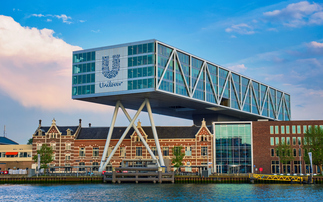There are still plenty of reasons to be optimistic at the prospects of a global climate change deal, but this week has offered a timely reminder the negotiations remain in the balance
Are the Paris Climate Talks facing a late set-back? The optimism that has been building ahead of the UN's Paris Climate Summit received a blow this week, as the G77 + China group of developing countries flexed its muscles at the latest round of talks in Bonn and inserted a host of new proposals into a negotiating text that was supposed to be getting smaller. These proposals, which focus on the perennial sticking points of where climate funding for poorer nations is going to come from and whether industrialised nations should commit to more ambitious emission reductions, were accompanied by increasingly fractious rhetoric that one seasoned observer described as some of the strongest seen in recent years, as well as the inevitable insertion of counter-proposals from wealthier nations that only swelled the text further.
Meanwhile, in an unprecedented move, the G77 group chided the media for perceived unfair reporting of the long-running negotiations (which is going to make writing this blog post a bit awkward), criticising a narrative that always "serves the narrow national interests of developed countries and says little about reality".
At the time of writing, the talks are continuing in Bonn and the latest version of the text to be released has been beefed up to 63 pages in total, at the end of a week when it was supposed to being streamlined.
The G77 + China intervention offers a timely reminder the upbeat predictions the talks are inevitably winding their way towards an ambitious and historic climate deal could yet be thwarted as the negotiations enter their final straight. It also highlights the crucial underlying and unaddressed problem that has stalked the UN climate talks from day one, namely, that these negotiations are about two inter-related but separate issues: the development of a global low carbon economy and the delivery of some form of 'climate justice', for want of a better term, for those nations facing the worst impacts from a changing climate.
These two issues are inextricably linked. A low carbon economy will reduce the risk of climate impacts and incorporate climate resilience measures, making it easier to ensure climate losses are managed in an equitable manner. Much of the climate funding that attempts to address the injustice that leaves the poorest nations that did the least to drive climate change facing the worst of the impacts will be used to build more sustainable low carbon economies.
However, the twin goals of the UN climate talks, while both hugely desirable, are not necessarily mutually dependent, even if many within the negotiations would like to see them as such. It is possible to mitigate climate change through the decarbonisation of the global economy without fully compensating those countries that face the worst environmental impacts, just as it would be theoretically possible to dish out climate-related reparations without building the low carbon infrastructure needed to ensure such compensation is not required indefinitely.
It is the varying degree of progress the talks have made towards these two goals that explains this week's resurfacing of the tensions between rich and poor nations that have long dogged the negotiations, just as it has repeatedly served to derail attempts to deliver a sufficiently ambitious climate treaty.
The optimism that has built around the talks in recent years has rested almost entirely on the encouraging progress made towards the development of a decarbonised global economy. Many of the negotiations' key players have belatedly realised legally binding conditions were always a useful safeguard, rather than an essential component of any new treaty. After all, what would happen if such legal restrictions were breached? Is any country really going to impose meaningful economic sanctions over violations of climate legislation? What would the UN security council really do with a country breaching its carbon targets, organise an invasion?
This pragmatic approach to the legal nature of any treaty helped break the deadlock that previously marred the talks. This realisation, coupled with improved relations between the two biggest power brokers, the US and China, and the drastic global reduction in clean tech costs, then paved the way for the proposed system of national climate action plans or Intended Nationally Determined Contributions (INDCs).
The promise of a new network of national emissions reduction strategies could prove to be the jewel in the crown of any Paris Agreement. The various pledges made in these national strategies do not go nearly far enough and the threat posed by climate change remains acute, but an agreement that results in pretty much every nation in the world setting out a plan to curb emissions and mobilise clean tech investment would be a massive coup for the green economy. It would also open up the prospect of many countries emulating the EU and over-achieving against their emissions targets, while putting the world on track to deliver the full-blown decarbonisation that is so urgently required.
The INDCs are a big deal. They could also provide the basis for a meaningful agreement that has clearly been taking shape in the run-up to the Paris Summit, one based on national emission reduction plans, a ‘ratchet' mechanism for strengthening these plans over time as clean tech costs thankfully fall and climate risks tragically escalate, stronger action to tackle deforestation, and clearer commitments on climate funding to help poorer nations deliver their action plans. The breadth of support for this putative deal, taking in industrialised nations, poorer countries, the emerging superpowers of China and India, and vast swathes of the business community, explains why the sense of optimism ahead of the Paris Summit has been more pronounced than at any point in the long-running talks' recent history. Such an agreement would be a long way from perfect, but it should prove simple and achievable, right?
Well, it might be if these talks were only about delivering a global decarbonisation policy framework, but, as the G77 + China reminded everyone this week, they are not. For those nations facing drought and famine and devastation and inundation as a result of climate change, a loose agreement that may deliver gradual emissions reductions was never going to be enough. For them, an equitable and just deal must be far more ambitious in terms of the emissions reductions it aims to deliver and offer much more support and compensation for those staring down the barrel of escalating hurricanes and failing harvests.
The talks have always been about climate justice, as well as clean tech opportunity; about the past, as well as the future. Consequently, there are many countries who want Paris to deliver a deal that properly acknowledges the existential threats they face, alongside the new clean tech markets and climate mitigation it also promises to create. They cannot and should not be blamed for using what leverage they have to try and secure a better deal for communities that are already facing the kind of losses from climate change those in industrialised nations may not have to address for decades to come.
The problem is that if building a global low carbon economy is politically challenging, engineering an agreement that rights all the wrongs and addresses all the iniquities that result from climate change will be seen as politically impossible by many of the key players. It is worth noting Europe and the US may have abolished slavery, but we are still arguing about reparations hundreds of years on.
There are still plenty of reasons for optimism as the final round of talks before the Paris Summit come to an end. A deal is clearly there to be done based on the system of INDCs, the negotiating text is half the length it was even with the latest additions, and, as one observer, put it to me, "everyone is serious about getting this done, no one is dicking about, which hasn't always been the case at previous talks".
And yet, the clock is ticking, and while progress has once again been made this week on issues such as climate mitigation and emissions transparency, fundamental differences remain on the issues on climate adaptation and funding, ie climate justice. The risk remains the ongoing failure to deliver the funding and recognition of responsibility for climate impacts that developing nations feel, often with considerable justification, that they are owed means the talks are likely to once again hang in the balance until the 11th hour.
Rich nations may have to adopt a more conciliatory position and recognise that at some point the legitimate grievances of many developing nations will have to be properly addressed if they are to deliver an international treaty and the huge economic opportunities it brings with it. Equally, developing nations may have to accept that without a compromise agreement this time around they risk missing out on both the climate funding that is on offer and the prospect of benefiting from an expanding global green economy.
The climate talks are having a bit of a wobble. We can only hope the opportunity to take a meaningful and historic step towards the development of a decarbonised economy is not squandered, because to do so would only heap injustice upon injustice.









